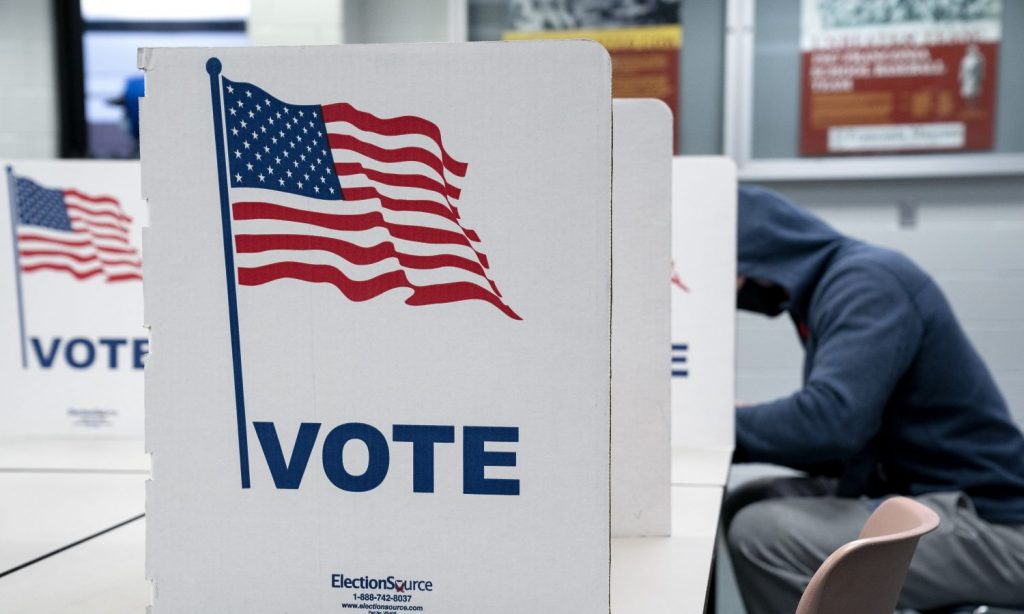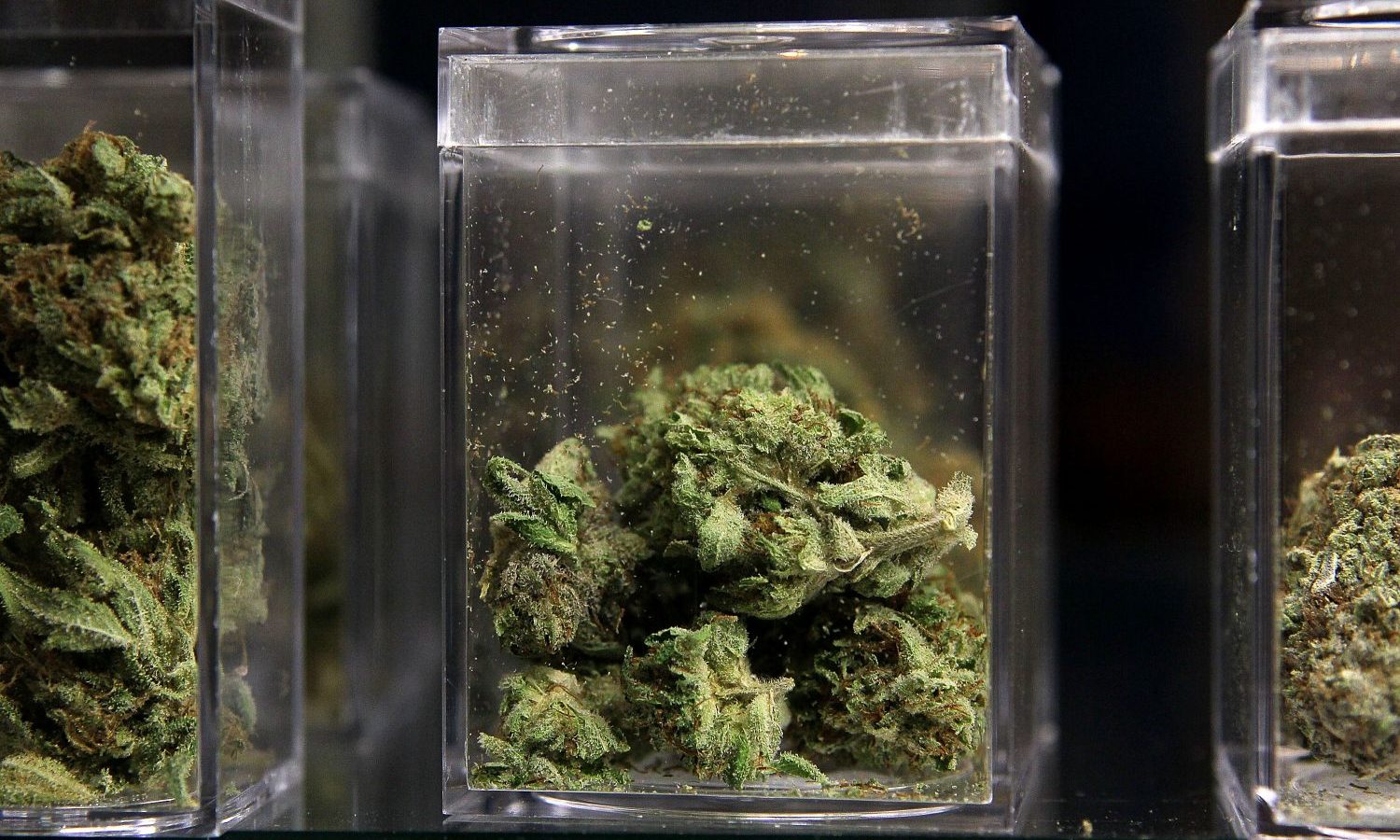The voters have approved all of the proposals to legalize the leaf put before them across the U.S., proving that weed is no longer a divisive issue.
While there is still a great deal of uncertainty over whether President Trump or Democratic candidate Joe Biden will actually run the country for the next four years, one thing is for sure: marijuana was the biggest winner in the 2020 election.
The voters have approved all of the proposals to legalize the leaf put before them across the United States, proving that weed is no longer a divisive issue. All we can say is it’s a brave new world out there today, friends. Welcome to it.
New Jersey
Following years of failed attempts by the state legislature, New Jersey finally put the question of fully legal marijuana on the ballot this year. And the voters turned out in overwhelming support for it too. The state’s constitution will now be amended in a way that permits the production and sale of cannabis throughout the state. It will also give adults 21 and over the freedom to buy it. But the outcome is not cut and dry. Jersey lawmakers must still pass a bill to set the new weed laws in stone. That could happen as early as this month, or, considering what we’ve seen from legislative forces in the past concerning weed, it might get dragged out indefinitely.
RELATED: Here’s What’s At Stake For Marijuana Legalization In The 2020 Election
NORML executive director Erik Altieri is hoping for swift action, “Garden State voters spoke resoundingly. They are demanding their lawmakers end the failed policy of marijuana criminalization, and instead pursue a more sensible path of regulation and legalization.”
Arizona
Arizona voters also came out in droves to approve a measure aimed at legalizing marijuana for recreational use. The ballot measure (Proposition 207) has been greenlit, allowing adults to possess up to one ounce of weed at a time. It also gives way to a licensing system that will open the state up to retail sales. According to reports, medical marijuana dispensaries may be allowed to open up to the recreational pot crowd as early as March.
The new law also allows adults to grow up to six plants at home for personal use. It will also allow people convicted of certain pot crimes to have their records cleared by the courts. In just 24 hours, Arizona moved from some of the country’s harshest pot laws to some of the best. “Until now, Arizona had imposed some of the strictest prohibition laws in the country; in some instances, the possession of even small amounts of marijuana was classified as a felony,” said Altieri. “By rejecting this failed policy, no Arizonan going forward will be saddled with a criminal conviction for engaging in the personal possession or cultivation of cannabis, or face the lifelong stigma that comes with it.”

South Dakota
South Dakota is another state that wasn’t messing around about changing its pot laws. Voters turned out on Tuesday to support two different measures aimed at legalizing either recreational or medical marijuana. Instead of picking one, however, they voted in favor of both. Now the state must implement a commercial cannabis system and a medical marijuana program. It means that adults 21 and over will have the freedom to possess up to an ounce of weed and grow three plants at home for personal use. Those who want cannabis for therapeutic purposes will need to get a doctor’s permission to participate. The state has until next October to put the medicinal side of things into place. The recreational end could take longer.
RELATED: What A Contested Election Could Mean For Weed’s Path To Legalization In 5 States
“South Dakotans sent an unequivocal message in support of allowing patients the ability to legally access it under the advice of their physician,” Altieri said. “When operational, this program will provide lab-tested medical cannabis products to thousands of South Dakotans who can benefit from them. These patients cannot wait, and voters were right to take action to make this access a reality.”
Mississippi
While the issue seemed at first to have the odds stacked against it, the majority of Mississippi voters came out on Tuesday and said that they wanted medical marijuana. The voters had the opportunity to pick two measures — one opening a system for some 22 qualifying conditions and another for the terminally ill — and in the end, they chose the most comprehensive plan.
The new law will give patients with conditions such as cancer, chronic pain, and PTSD the ability to use medical marijuana with permission from a doctor. “Initiative 65 puts the needs and interests of patients first,” said NORML Deputy Director Paul Armentano. “This was a grassroots effort to provide patients with access to a treatment option that patients already enjoy in 34 other states and in the District of Columbia.” The state must have the program regulations in place by the summer of 2021.
Montana
Voters across the Treasure State showed up Tuesday to end marijuana prohibition once and for all. Through two separate amendments, the voters approved the production and sale of marijuana to adults 21 and over. These people will have the right to possess, use, and grow weed at home starting at the beginning of next year. “This result illustrates that support for adult-use marijuana legalization extends across geographic and demographic lines,” said Altieri. “Marijuana legalization is not exclusively a ‘blue’ state issue, but an issue that is supported by a majority of all Americans — regardless of party politics.
By approving these voter-initiated measures, Montana now joins the growing list of states that have recognized that it is time to end marijuana criminalization and move forward with a new approach.”


